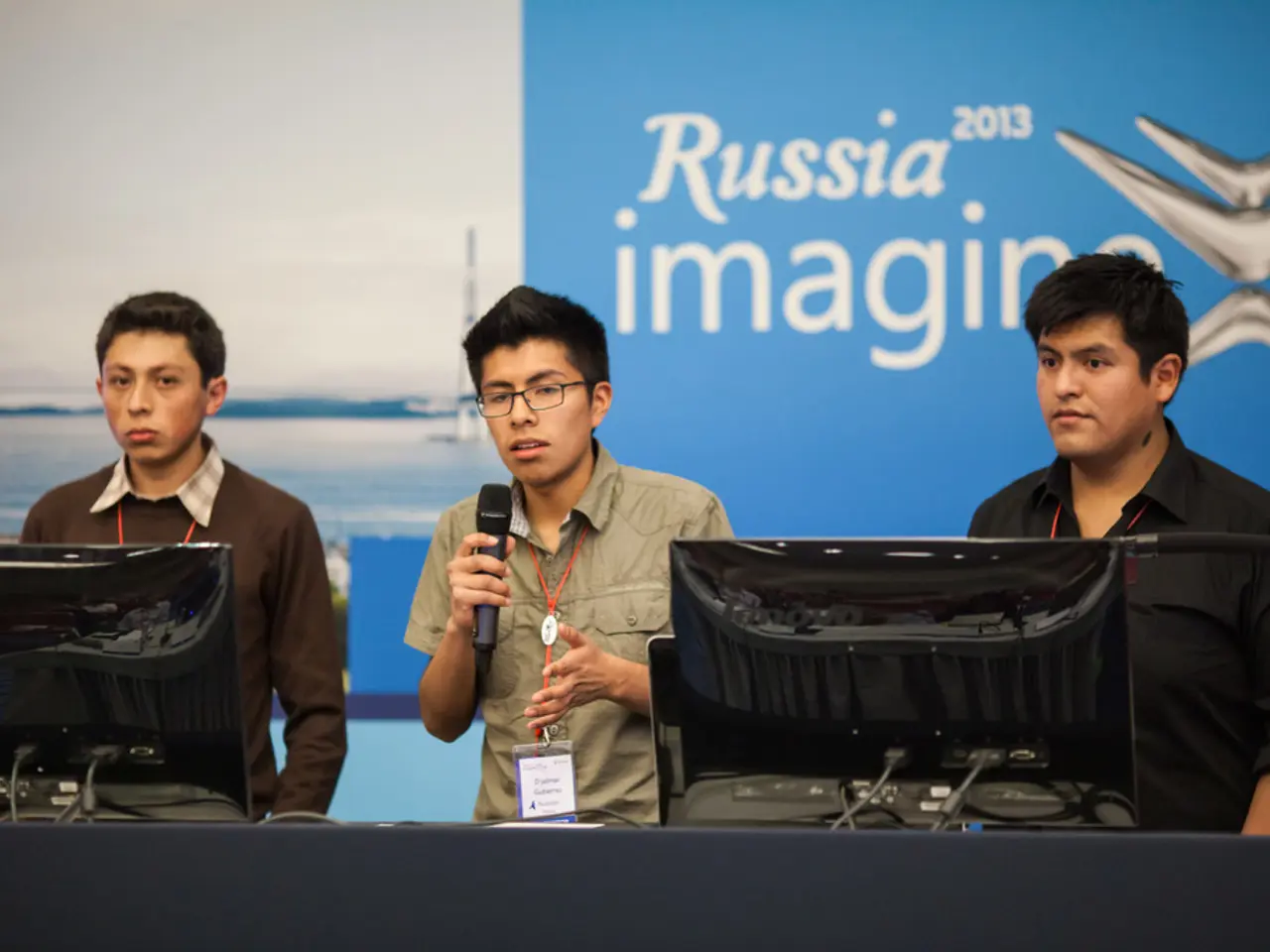Nvidia disputes allegations of 'secret entryways' in their chips following China's expressed worries about security issues
In a significant turn of events, Nvidia, the American tech giant headquartered in Santa Clara, California, is embroiled in a dispute with China's Cyberspace Administration (CAC) over allegations that Nvidia's H20 artificial intelligence chip contains "backdoor" vulnerabilities enabling tracking and remote shutdown capabilities.
The CAC has summoned Nvidia to explain these purported security risks, asserting that the chip has built-in mechanisms that could allow unauthorized access or control. These concerns have raised questions about data privacy and national security.
Nvidia, however, vehemently denies these claims. The company emphasizes that the H20 chip does not have any such hidden access or remote control features. Nvidia insists that it does not embed backdoors in its hardware and ensures the chip complies with U.S. export restrictions. The company also highlights that the H20 was specifically designed for the Chinese market with compliance in mind, and the allegations are unfounded and reflect broader geopolitical tensions between the U.S. and China over advanced AI and semiconductor technologies.
This dispute unfolds against the backdrop of ongoing U.S.-China technology competition. Previously, the U.S. had restricted exports of high-end AI chips like the H20 to China. However, after discussions involving U.S. policymakers and Nvidia’s CEO, those restrictions were eased, allowing shipments to resume. China's concerns about tracking and remote shutdown technologies echo demands by some American lawmakers for exported chips to have monitoring capabilities. This has fueled suspicion in China that U.S.-designed chips could be used for espionage or control, prompting regulatory scrutiny.
In recent developments, Nvidia has announced plans to make AI supercomputers in the U.S. for the first time. Last week, Nvidia CEO Jensen Huang stated that the Trump administration's artificial intelligence plan was poised to boost innovation and AI deployment in the U.S.
It's important to note that this is not the first time that U.S. tech companies have faced accusations of posing threats to China's security. Previously, China has expressed concerns about the security of American-made chips sold overseas.
The denial from Nvidia comes after reports suggesting that Nvidia insiders dumped more than $1 billion in Nvidia stock. Despite this, Nvidia's products remain in high demand across China, including among tech companies, the military, universities, and AI research institutes.
This ongoing dispute underscores the complex relationship between the U.S. and China in the realm of advanced technology and the need for transparency and trust in cross-border trade.
Sources:
- Reuters
- Fox Business (MorganPhillips)
- TechCrunch
- The Verge
- Ars Technica
- The ongoing dispute between Nvidia and China's Cyberspace Administration (CAC) poses questions about the role of artificial-intelligence (AI) technology in markets, particularly the Chinese market, where specialized AI chips like Nvidia's H20 are concerned.
- Amidst the dispute, Nvidia is emphasizing that its products, such as the H20 chip, do not contain any hidden features that could compromise data privacy or national security, countering allegations of built-in mechanisms enabling unauthorized access or control.




